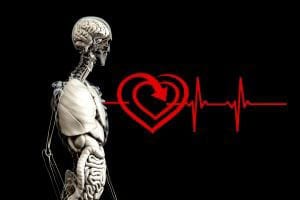Eisenmenger Syndrome
What is Eisenmenger syndrome?
Eisenmenger syndrome is a congenital heart condition that results in chest pain, arrhythmia, stroke, fainting, and other painful symptoms. It is caused by a ventricle septal defect, where blood flow in the heart isn’t normal and thus causes high pressure in the pulmonary artery. Patients can live 20 to 50 years with this condition.What are the symptoms of Eisenmenger syndrome?
Eisenmenger syndrome symptoms include:- Chest pain
- Dizziness
- Fainting
- Fatigue
- Difficulty breathing
- Stroke
- Palpitations
- Arrhythmia
- Swelling joints
- Bluish/purple and numb extremeties
- Coughing up blood
What causes Eisenmenger syndrome?
Eisenmenger syndrome is caused by a hole between the left and right ventricles in the heart, causing oxygenated blood to flow back into the lungs instead of the rest of the body. Eisenmenger syndrome can be caused by other heart defects as well.- Atrial septal defect
- Ventricular septal defect
- Atrioventricular canal defect
- Patent ductus arteriosus
- Cyanotic heart disease
How is Eisenmenger syndrome diagnosed?
Eisenmenger syndrome is diagnosed through a series of tests and clinical examination. Tests may include:- Chest x-ray
- MRI
- Electrocardiogram
- Echocardiogram
- Complete blood count
- Cardiac catheterization
What treatments are available for Eisenmenger syndrome?
There is no known cure for Eisenmenger syndrome. Eisenmenger syndrome treatments aim to manage symptoms. Medications for Eisenmenger syndrome include:- Arrhythmia medication
- Iron supplements
- Blood thinning medication
- Endothelin receptor antagonists
- High blood pressure treatment
- Antibiotics
Where can I find out more about Eisenmenger syndrome?
Eisenmenger Syndrome Articles


30 Years Later, Woman with Eisenmenger Syndrome Thanks Surgeon for Changing Her Life
Patient Worthy Contributor
November 13, 2017
Read More »

Two Centuries of Research Pays off for Eisenmenger Syndrome Patient
Erica Zahn
February 1, 2017
Read More »






